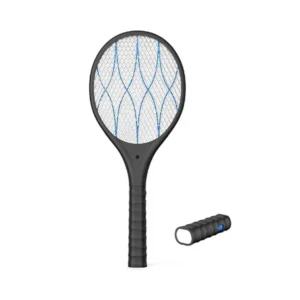Embracing the Buzz: The Surprising Benefits of Mosquitoes in Our World

The Balancing Act: The Advantages of Having Mosquitoes
Mosquitoes announce their presence in response to the summer sun’s warmth, eager to engage in their notorious feeding behaviors. Some of the more than 3,500 species of mosquitoes in the world are capable of transmitting hazardous diseases such as Japanese encephalitis. The threat of Japanese encephalitis has been a source of concern in Queensland, Australia. Despite the dangers posed by these mosquitoes, it is necessary to acknowledge the benefits of their existence. This article will examine the potential benefits of mosquitoes, focusing on their function in ecosystems, their unexpected contributions as pollinators, and their significance as a vital food source for numerous species.
The occurrence of Japanese Encephalitis in Queensland

Japanese encephalitis stands out among the many mosquito-borne diseases as a significant public health concern in certain regions, including Queensland, Australia. This disease is caused by the Japanese encephalitis virus (JEV), which is transmitted to humans predominantly through the bites of infected mosquitoes, specifically Culex tritaeniorhynchus and Culex gelidus. Japanese encephalitis can result in severe neurological complications, such as inflammation of the brain (encephalitis), and can cause permanent brain damage or mortality. While the risk of contracting Japanese encephalitis is low, this highlights the significance of understanding mosquitoes and the diseases they can transmit. In 2022, the Japanese encephalitis virus (JEV) was found in humans, mosquitoes, and pigs throughout several states in Australia, Queensland being one of them. That year, Queensland reported five local human cases of Japanese encephalitis (JE). Before this, the most recent local case in Queensland dated back to 1998 in Far North Queensland.
Mosquitoes are Ecosystem Watchdogs
While we’re often busy swatting mosquitoes away and fretting over diseases like Japanese encephalitis, there’s more to mosquitoes than meets the eye. You’d be surprised by the fan club they’ve got in the wild. Bats, for instance, are huge fans – a lot of bat species munch on them like they’re going out of fashion. And it’s not just bats; fish, birds, frogs – a whole lot of creatures count mosquitoes as a major part of their menu.
Now, why does that matter, you ask? Well, by being such a popular snack, mosquitoes help keep our ecosystems in balance. Without all these animals feasting on them, we’d probably be drowning in a sea of mosquitoes! Plus, by controlling their numbers, these predators indirectly help in keeping diseases in check. So, while they might be a pain at our barbecues, in the bigger picture, mosquitoes are playing their part in nature’s dance. Let’s give them some credit for that!

Unexpected Pollinators
Despite the fact that mosquitoes are commonly associated with their blood-sucking behaviour, they are not merely pests. A surprising portion of their diet consists of nectar, and they actively partake in pollinating numerous plant species. As mosquitoes seek nectar from flora, vegetables, and herbs, they unintentionally transfer pollen from one plant to another, thereby contributing to fertilisation and seed production. Due to their specialised adaptations, bees and butterflies are more effective pollinators than mosquitoes, but mosquitoes still play a role in plant reproduction, particularly in regions with limited pollinator diversity.
While humans may find the thought of eating mosquitoes repulsive, many animals find them to be a tasty delicacy. In addition to being an essential food source for bats and animals, mosquito larvae are also a major food source for aquatic organisms. In aquatic ecosystems, fish, amphibians, and insects rely significantly on mosquito larvae as an essential part of their diet. Eliminating mosquitoes from these ecosystems could cause imbalances and cascading effects, endangering other species and upsetting the delicate equilibrium of the environment.
Given the dangers posed by diseases such as Japanese encephalitis, it is only natural for communities to consider mosquito control methods. Nevertheless, it is essential to approach such endeavours with caution so as not to disrupt ecosystems. Effective mosquito control measures can reduce disease transmission while mitigating the impact on other species. This strategy maintains ecological equilibrium while addressing public health concerns.
In Conclusion: The Buzz on Mosquitoes
Wrapping things up, mosquitoes are far more than just the pesky critters we often make them out to be. Sure, the mention of Japanese encephalitis and other diseases paints a troubling picture, especially for regions like Queensland. But as we’ve delved into, mosquitoes play pivotal roles as pollinators, a critical food source, and much more. Nature has its way of maintaining balance, and every creature, no matter how small or seemingly annoying, has its purpose. As we think about controlling their numbers to keep ourselves safe, let’s also consider the broader ecosystem and tread thoughtfully. So the next time a mosquito buzzes by, give a nod to its place in our world’s intricate dance. We might not love every bite, but we can appreciate the balance they bring.
Given the dangers posed by diseases such as Japanese encephalitis, it is only natural for communities to consider mosquito control methods. Nevertheless, it is essential to approach such endeavours with caution so as not to disrupt ecosystems. Effective mosquito control measures can reduce disease transmission while mitigating the impact on other species. This strategy maintains ecological equilibrium while addressing public health concerns.
Mosquito Solutions












 Mosquito Traps
Mosquito Traps